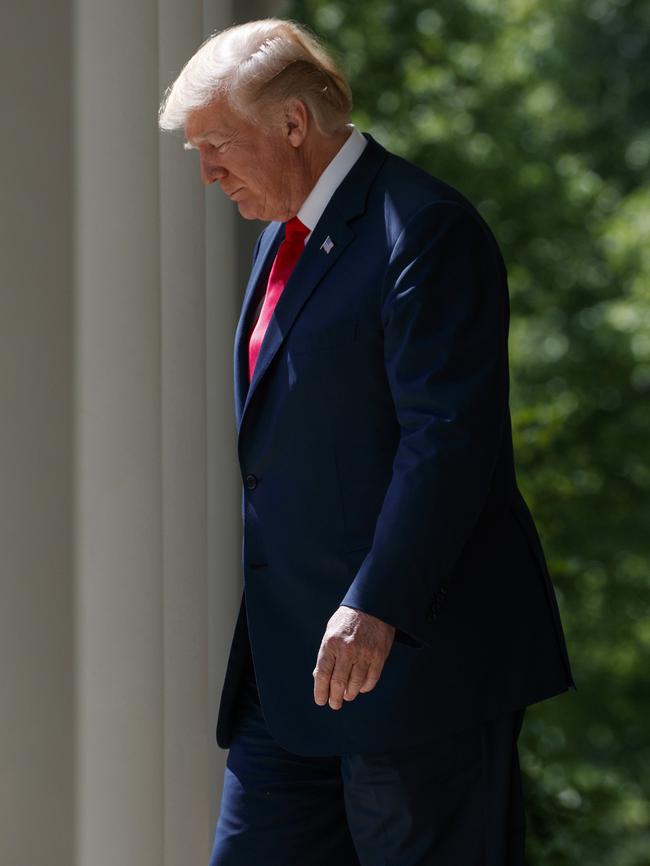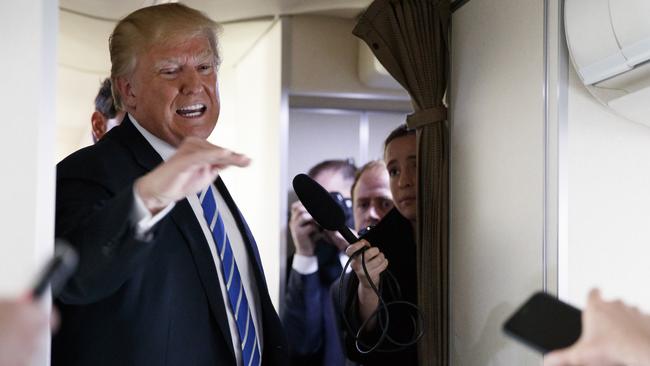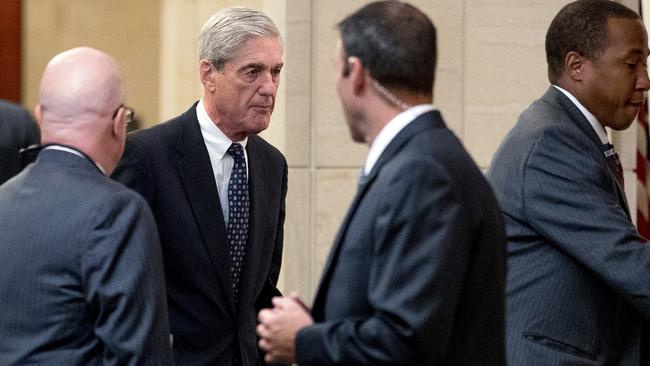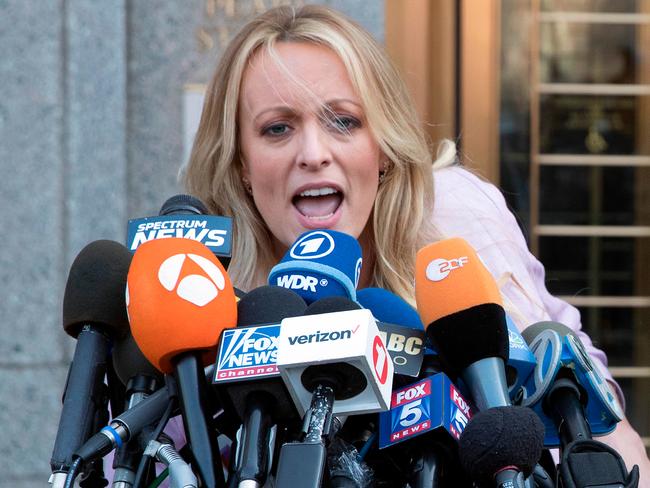For Donald Trump, it is the best of times – and the worst of times.
In the last ten days Trump and the world saw the prospect of peace finally begin to dawn on the Korean peninsula. And, perhaps even more extraordinarily, we witnessed hip-hop star Kanye West declare his support for the American president and all but come out as a Republican.
But over the same period, the existential dangers to Trump’s administration have only increased, leading the presidency into dangerous and uncharted waters.
It’s a high stakes game that sees Trump trying to solve all the problems of the world while his enemies attempt to solve what they consider to be the problem of Trump
While Trump has been practicing his own brand of unorthodox but so far effective diplomacy around the world, in Washimgton, special prosecutor Robert Mueller has taken his investigation of the president far away from its original hunting grounds seeking evidence of collusion with the Russians.
Instead, he has zeroed in on possible campaign finance and obstruction of justice charges stemming from payments made to porn star Stormy Daniels.
It’s a high stakes game that sees Trump trying to solve all the problems of the world while his enemies attempt to solve what they consider to be the problem of Trump.

Peace on the peninsula?
Six months ago, some sort of conflict on the Korean peninsula seemed all but inevitable. North Korea was testing missiles every week while Trump was taunting the country’s dictator, Kim Jong-un, with names like “rocket man”.
When Hawaiians received a text message – sent accidentally, as it turns out – warning them to take cover from an inbound missile, the possibility that World War III was about to break out seemed all too real.
Fast-forward to today and Trump is being feted as a Nobel Peace Prize contender as North and South Koreas move forward on peace talks and the US readies for a summit meeting with Kim Jong-un.
So, what happened?
In a word, Trump.
Skeptics caution that when it comes to peace promises form the North Korean regime, we have been here before.
In 1985, North Korea signed the global nuclear Non-Proliferation Treaty, or NPT. In 1992, North and South Korea signed a joint declaration promising to denuclearise the Korean peninsula. Two years later, in 1994, North Korea again pledged to dismantle its nuclear program in exchange for aid.
And so on.
Still, there are further signs of a thaw.
On Wednesday, North Korea agreed to release three American citizens who had been held in labour camps with an eye towards returning them to the US at or before the planned summit between Kim and Trump.


“We believe that Mr. Trump can take them back on the day of the US-North Korea summit or he can send an envoy to take them back to the US before the summit,” Korean freedom activist Choi Sung-ryong told the Financial Times.
What makes North Korea’s moves in the direction of peace more likely this time is Trump’s willingness to go outside traditional diplomatic norms, which have for decades and under both Reopublican and Democrat US administrations, seemed to prefer a festering but stable North Korean dictatorship over the unpredictability of change.
By pressuring China – North Korea’s sole remaining lifeline to the outside world – to force concessions from Kim’s regime through the threat of trade sanctions,
And for China’s part, the threat of an unpredictable US president taking military action that might have seen American troops approach Beijing’s Manchurian border was unacceptable.
But for all the apparent success – and despite the talk of a Nobel Prize, true peace is still a long way off – on the Korean peninsula, there is the danger that Trump’s brand of diplomacy might have a limited shelf life.

To put it another way, unpredictability only works for as long as it takes for it to become predictable.
Which means that Trump may have a much harder time solving the problem of Iran – which was empowered by a much-criticised deal signed under Barack Obama and whose leaders are spoiling for a fight.
Trump wants to “tear up” the deal, which has seen Iran promise to curb its nuclear activity (sound familiar?) in exchange for relief from sanctions.
The problem is, Iran has far more options to cause chaos in retaliation.
Iranian proxies have been building up their forces in Lebanon and Syria; the Hezbollah flag is flown openly on the Lebanese side of Israel’s northern borders. Intelligence experts say that Iran is spoiling for a fight and has the power to rain thousands of missiles from installations such as these – many embedded in civilian areas, making defense and retaliation more complex – down on Israel.

And it’s not just Israel: Iran’s tentacles extend to conflicts in Iraq, Syria, Yemen, and beyond. Unlike the hermetic North Korean state whose primary goal would seem to be survival, Iran has ambitions in the Middle East – putting it in direct conflict with American allies in Tel Aviv as well as Riyadh.
More than a Stormy in a teacup
Ultimately, though, what may determine the success of Trump’s anything goes diplomacy is the ongoing drama in Washington.
Special counsel Robert Mueller, whose original brief was to investigate possible Russian interference and collusion with the Trump campaign during the 2016 election, has taken his investigation far afield.
With the Moscow angle for the moment seemingly exhausted, Mueller’s team is looking at payments Trump made to porn star Stormy Daniels to keep quiet about their alleged affair – and whether this hush money may have violated campaign finance rules. Much of this hinges on Mueller’s recent raid on Trump’s attorney, Michael Cohen.

In response, Trump has brought in a team of heavy hitters, including former New York City mayor Rudy Giuliani, in what is shaping up to be a showdown that could see the president subpoenaed.
If that happens, Trump will find himself in uncharted territory. While he may risk outrage by firing Mueller, if he testifies he could be forced into an obstruction of justice or perjury trap – no matter his guilt on any other matter – which could trigger impeachment proceedings in the Congress.
It’s still a remote possibility, but the irony is that were Trump to fall – something that would see America divided in ways it hasn’t been since Richard Nixon’s resignation – it would, for Washington, represent a return to business as usual.


Beloved Year 12 student dies in freak accident
A Year 12 student and rower at one of Sydney’s most exclusive schools has died in a freak accident near his family’s remote farm, triggering a wave of grief in the community.
Major search continues for missing fisherman
A large-scale air and sea search has resumed at first light this morning off the South Coast, as authorities continue efforts to locate a missing fisherman last seen on Saturday near Batemans Bay.